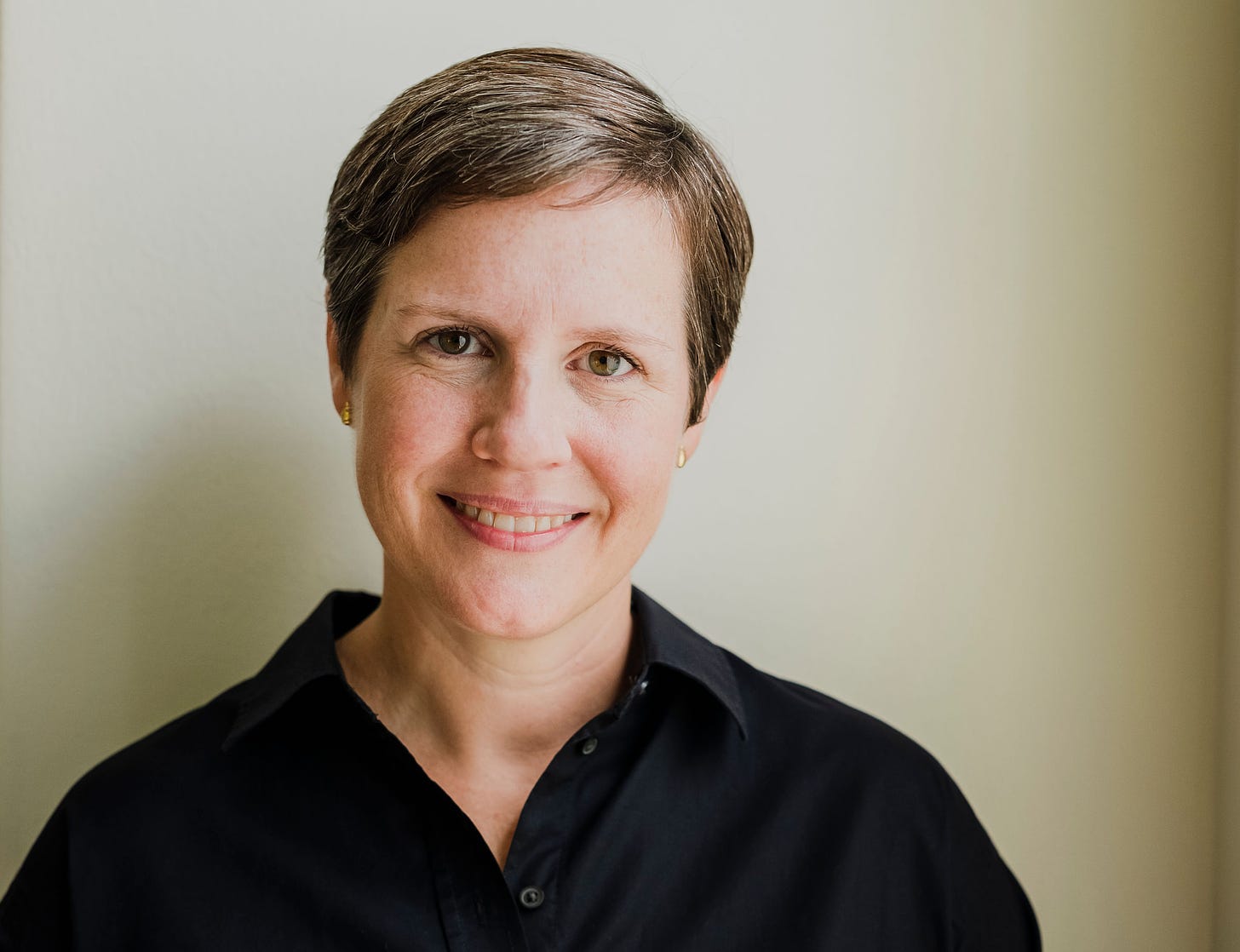Why We’re Thinking About Equal Partnership at Home All Wrong
A just-released guide provides a refreshing new take on the topic.
It’s time to think about gender roles in a new way.
After my son was born, my husband and I settled into an equitable arrangement that suited both of us: I took care of our son, for the most part, and my husband took care of the household chores. I didn’t understand why so many couples seemed to struggle with splitting domestic duties.
Then along came our second child, and my mental load doubled overnight. I now was in charge of managing meals, pick-ups, child care, appointments, play dates, medications and more for two kids enrolled in an ever-expanding list of extracurricular activities. Our equal arrangement quickly unraveled, especially when my son’s school went virtual during the pandemic.
We’re still working on what an equal partnership looks like during this phase of our kids’ lives and our careers—which is why I love books on the topic.
Still, I sometimes find them frustrating. They often suggest women approach our partners in a gentle and playful manner—lest we frighten them away from fully participating at home. It feels like one more task on our plate. In addition to everything else, we must perform the emotional labor of anticipating our spouse’s discomfort and scheme to prevent it.
That’s why Kate Mangino’s just-released guide, Equal Partners: Improving Gender Equality at Home, is so refreshing. A gender expert and professional facilitator, Kate doesn’t view her book as a prescription for moms to fix their relationships‚ but rather as a call to rewrite gender norms and expectations so everyone can contribute to creating strong homes and communities (grandparents, friends and caregivers included).
We talked to Kate about the surprising things she learned about gender equality while researching the book. Her insights might just give you the validation and inspiration you need right now:
In one part of the book, you focus on a group of 40 men who are equal partners and intentionally take on their share of the cognitive, physical and emotional load of their household. Was there anything those men had in common?
They don't have a lot in common. They come from diverse places and diverse families, with very different upbringings. Only two of them had parents who role modeled equity in the home. What they have in common is intentionality about today. They all agree 100% that they're not giving anything up. They believe this way of life is better for them—for the connections they have with their kids, the relationship they have with their spouse or partner, and the relationships they have with family members.
Was there a lightbulb moment or anything that made them realize household equality is better for them?
There wasn't one lightbulb moment for anyone, but one thing surprised me as I did my research: I thought the book was going to be much more focused on the nuclear family, but that actually wasn't the case. I found that people were just as likely to be inspired by an uncle they saw once a year, or the dad of a friend who they went to middle school with for two years, or a camp counselor who they only knew for two months. What I learned is that all of us have the capacity to inspire gender equality. That gave me a lot of hope that it's not just about role modeling in a family. And if you have an equal partnership in your household, you're probably inspiring not just your kids, but all of your nieces and nephews and kids’ friends who come over for play dates.
Kate Mangino is the author of Equal Partners: Improving Gender Equality at Home.
In the beginning, you say the book isn't targeted solely to women with children. In other words, it's not our responsibility to fix unequal partnerships. I love that! But if our partners don’t bring it up first, then what?
If you want to support equal partnerships, it could be in your own household or your own marriage, but it doesn’t have to be. We shouldn't expect the people who have been put upon the most to also fix the social inequities in their life. If a working mom wants to use the information from the book to have a conversation in her household, that's great. But I hope it also opens up opportunities for conversation with her mom, her girlfriends, her brother, and her cousin who is just getting married.
I agree! We can fix gender inequities in lots of places. Personally, I’d love to see more men on the PTA.
That's a great place to start. On any volunteer committees we serve on, we can ask for gender balance—that we're not going to recruit any more moms until we start recruiting dads. That's not in your own family, but it is in your community and it will have a positive impact on your family.
What's the one piece of wisdom you'd like readers to take from your book?
It's not on moms to fix this. This is a community issue. This was going on before any of us were born, and it is far greater than any individual family can solve. So for anyone who feels frustrated with their own personal situation, just know it's not your fault.
So you’re saying we should slip a copy of the book into our partner’s hands?
It’s funny, most of the stories in the book are from men, and I did have many early male readers. It was written intentionally to bring them into the conversation. I love a good feminist rant, but this book is not a feminist rant. We even designed the cover specifically so that it was gender neutral and it wouldn't be off-putting for a male reader. We're hoping that it will slowly trickle out to a wider audience so we can get beyond the choir and preach to some new people, so to speak.
GRAB A TOOLKIT:
With an MH All-Access subscription, you get unlimited access to all of our household and workplace toolkits, with step-by-step plans for managing child care, chores and much more. Our partners at Indeed know that women need work, but more importantly that work needs women! That’s why we’ve partnered to make our guide to landing your dream job free for everyone. Download it today!
1:1 COACHING
The childcare crisis is getting worse. Get coaching, feedback, advice, and mentorship from the nation’s top leaders in parenting, work and life, including Winnie CEO Co-Founder Sara Mauskopf. Schedule a Motherboard session today!
LOVE TO SEE IT
Hope and optimism as Justice Ketanji Brown Jackson is sworn in during an unprecedented time for the Supreme Court. She is taking her place as the first Black woman on the court at a complex time, when questions are being raised about its legitimacy and the role of politics in its decision making.
HATE TO SEE IT
Mass shooting are becoming commonplace as gunshots rained down from a rooftop onto a Fourth of July parade in Highland Park, Ill. It sounded at first like fireworks to the parents who had brought excited children to a charming Fourth of July parade in their town. Or perhaps a military salute to the flag. But within seconds, as marching band members and politicians strutted down the street, horrified spectators realized the noise from a nearby rooftop was a high-powered rifle spraying bullets into the crowd, killing six people and wounding dozens.
#RELATABLE
This newsletter was written by Audrey Goodson Kingo, Editor in Chief at Mother Honestly. Please send feedback, ideas and suggestions to me at audrey@motherhonestly.com. And if you found this newsletter helpful, share with a friend:







